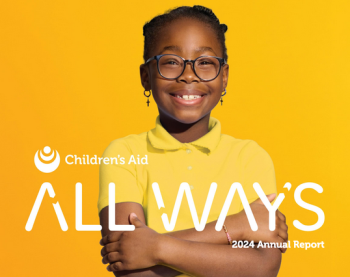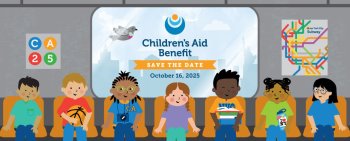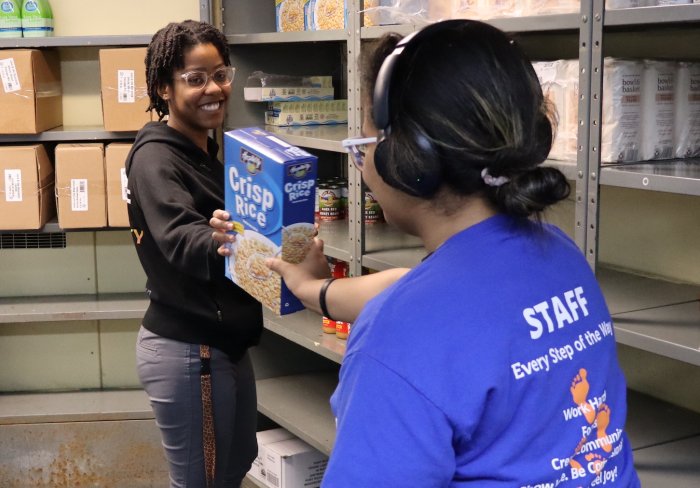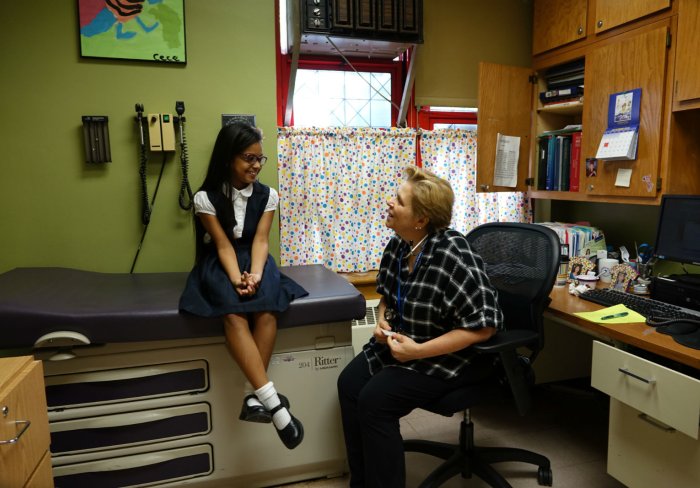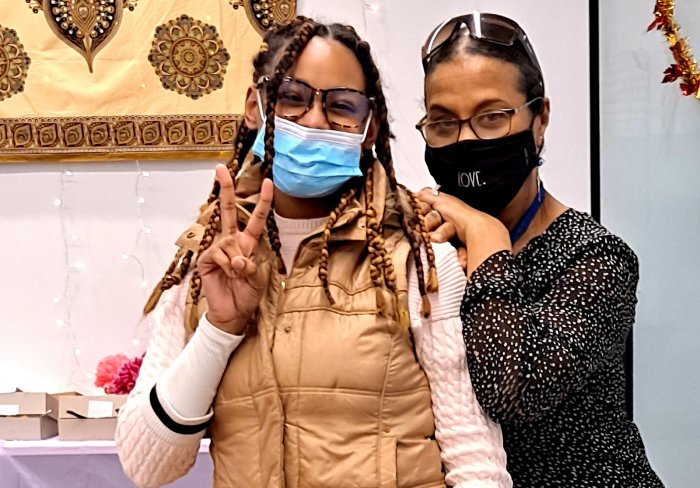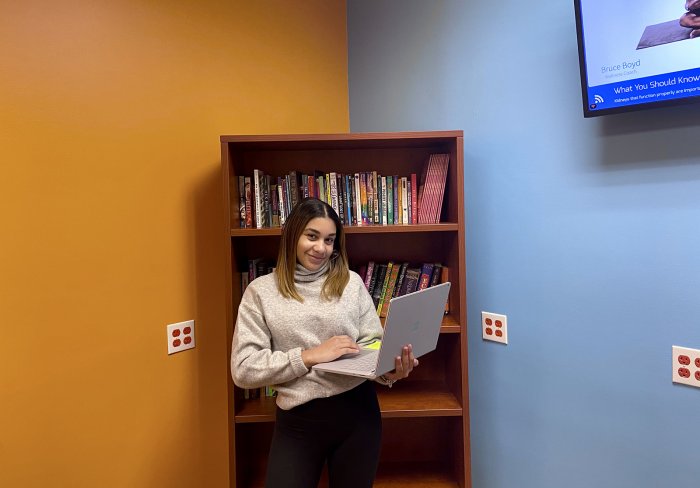The youth took Sharpies to tennis balls and soccer balls, writing down the burdens they carried with them every day. For some, it was school. For others, it was work. Or siblings. Or friends. Then, on notecards, they scribbled some of the feelings – joy, sadness, anxiety – that they’d experienced in the past week. Then, they approached the horses.
It was a Saturday morning early this summer, and teenagers from our G.L.E.A.M. (Guide, Lead, Educate, Advocate, Motivate) program were in the midst of an eight-week horse therapy session. The special excursion was paid for thanks to generous funding from Fair Futures.
At first, everything about the experience seemed novel. On the initial visit, the youth pressed their faces against the windows of the bus, watching densely packed city blocks give way to expanses of farmlands. Some were too scared even to approach the massive animals.
“We wanted to do something outside of the box, especially because of the pandemic,” said Brenda Triplett, director of educational achievement and partnerships at Children’s Aid. “Many young people are experiencing mental health challenges right now, and we thought that this could be a constructive and fun way to address some of those issues.”
As the program progressed, though, they came to feel a kinship with these creatures. All of the horses at Lucky Orphan Horse Rescue in Dover, New York, have been saved from slaughter. Many have suffered neglect or abuse at the hands of humans. They have the scars to show for it.
For some of the youth, there was a parallel between their own stories and that of the horses. “They have been through so much,” said one youth, “just like we have been through so much.”
During the course of the program, the students learned to handle the horses – grooming them, feeding them, and walking them around the beautiful grounds of the ranch. They also learned about themselves in the process – how they process difficult experiences, and how they can transform emotional challenges into positive changes in their lives.
“They beauty of it is that we can be new-agey and say that it’s magic, but there’s actually a scientifically proven explanation for why horses work so well with humans,” said Deanna Mancuso, the founder of Lucky Orphan. “Horses lead from behind. The alpha of a pack runs in the back, rounding everyone up. They don’t leave anyone behind.”
Mancuso, who is a Bronx native, started out in commercial horse farms in 2003. She switched her business into a nonprofit in 2008, and she’s been doing equine-assisted psychotherapy since 2013. Because the farm adopts all the horses, the students are able to get used to seeing the same animals week after week.
“The beauty of that is that for some of the kids we work with, the farm is the only consistency they have,” Mancuso said. “Their horse will be here every time they come.”
On this week, the youth were tasked with pressing those notecards and balls against the horse as it trotted. Almost all of them ended up on the floor after just a few feet. Mancuso then asked them how hard it is to balance what they were feeling and the burdens they were carrying with their everyday responsibilities.
“The horse doesn’t care about what you’re carrying,” she said. “Life just keeps moving forward, and we have to learn how to cope with that.”
At the end of every session, the entire group goes into a classroom and discusses what lessons they’ve learned and how they can be applied to their lives. Through these discussions, they grow closer as a group, and they learn more about themselves as individuals.
“I really feel like the horses can understand me, and that I can understand them,” said one of the youths in the session. “We know each other’s struggles, and we help each other with them.”
